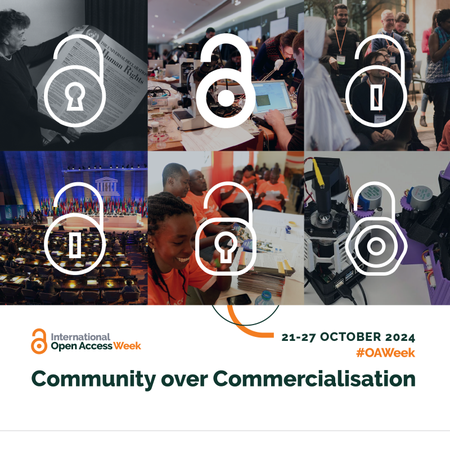As we mark this year's International Open Access Week, themed "Community over Commercialisation", I want to share my thoughts on OpenAlex, an open, community-driven scholarly index that offers an alternative to commercial platforms like Web of Science, Scopus and Dimensions.
Launched in 2022 by OurResearch, a nonprofit organisation, creator of other open services such as Unpaywall, and named after the ancient Library of Alexandria, OpenAlex currently indexes more than 240 Million scholarly works. To put that in perspective, it's more than double what Scopus and Web of Science offer. It's second only to Google Scholar in terms of quantity, but here's the kicker - it's far more reliable.
Now, don't get me wrong. I've used Google Scholar plenty of times. It's free and convenient, especially when you're in a hurry. But it's not without its issues. Many researchers have reported finding citations to their work from unexpected sources, like wedding reports or student assignments. There have even been cases of researchers discovering publications attributed to them that were actually by someone with the same name. It can be flattering for a moment, but ultimately frustrating and misleading. This kind of inaccuracy can inflate citation numbers and create publication profiles that don't truly reflect a researcher's work. It is evidence of how easily information on Google Scholar can be manipulated. There's even a hilarious (and slightly concerning) case of cats becoming cited academics (Engineering the world’s highest cited cat, Larry – Reese Richardson) !!
On the other hand, subscription-based services like Web of Science and Scopus provide more accurate data. These platforms are go-to resources for many researchers looking to find the most cited papers in their field, track who's citing their work, or analyse research metrics. But you need a subscription to access this data.
If you're affiliated with a university, this might not seem like a big deal. After all, many institutions pay for these subscriptions on behalf of their students and staff. But let's take a step back and look at the bigger picture.
These subscriptions are expensive, really expensive. And not all institutions can afford them. This creates a problematic divide in academia. What happens when you move to an institution that can't afford these tools? Or if you leave academia but still need to work with literature data?
This is where the real issue lies: proprietary systems create barriers and add unfair advantages.
OpenAlex: An Open, Reliable Alternative
So, what makes OpenAlex different? First off, it's open-source and pulls data from reputable sources like Crossref, ORCID, and PubMed, DOAJ, Zenodo, etc.. But what really got me excited was its community-driven nature.
I recently attended a presentation by OpenAlex's CEO, and something simple yet profound struck me. Any improvements users make to their metadata - whether it's updating their ORCID or correcting institution details - are fed back into the system for everyone's benefit.
This hit home for me. I've spent countless hours manually checking and correcting author profiles on platforms like Scopus and Web of Science. It's tedious work, but necessary to ensure accurate attribution. The frustrating part? Those corrections only benefit the proprietary platform and those who pay the subscription. With OpenAlex, every little improvement we make collectively enhances the system for all.
OpenAlex at Aberdeen
Here at the University of Aberdeen, we've started integrating OpenAlex into our workflows, and the results are exciting. We've created a publication dashboard where researchers can explore the most used publication venues, open-access information, and more.
One of the biggest advantages we've found is that accessing the API doesn't require a product key, making integration with tools like Power BI easier. Sure, it requires some coding skills, but OpenAlex also allows CSV downloads for those who prefer a more familiar format. And let me tell you, after the frustration with download limits on platforms like Web of Science (1000 records at a time?!), the absence of such restrictions on OpenAlex feels liberating.
Wrapping up…
OpenAlex represents a shift towards more transparent, accessible academic research, where data isn't confined by commercial interests. By offering a rich dataset openly, it allows academics, libraries, and institutions to explore scholarly communications without limits.
As the open research movement continues to gain traction, OpenAlex is leading the way by demonstrating that we can build a more equitable research landscape, one where community truly comes before commercialisation.

Francesca Soldati
Open Research Team


